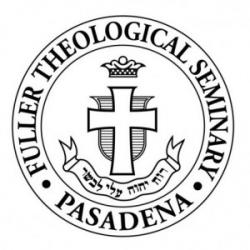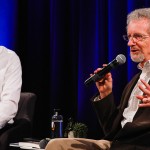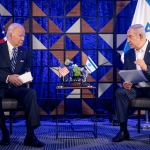Brueggemann’s Theology of the Old Testament, Part 2. Part of a series preparing for Brueggemann’s lectures at Fuller Seminary at the end of April.
By Reed Metcalf
Reductionism is a problem. It happens daily on social media, news broadcasts, and even communication between officemates. Reductionism is about taking something complex, large, and difficult and making it simple, small, and easy to grasp.
This can lead to issues.
Granted, reductionism is a good thing in some areas: we can’t all be experts on everything, so we need bullet points to operate on limited info; sometimes we have to shorten a story or briefing to get to the point. When dealing with theology, though, this can be disastrous. It can take very complex issues and shrink them to one-sided distortions. This has been common practice with the Bible by folks in and outside of the church for centuries. We simplify things so that we can understand them better.
The problem is, God is not simple.
In Theology of the Old Testament, Old Testament scholar Walter Brueggemann takes reductionism to task. Claiming reductionism has run rampant long enough, Brueggemann drives home the complexity of the biblical witness to God. In doing so, he reminds us of the vastness, wildness, and infiniteness—I might daresay “godliness”—of God.
After a long introduction, Brueggemann starts his comprehensive treatment of Old Testament theology with the conviction that the Old Testament revolves around Israel’s testimony. Though we like to try to give clear-cut definitions of who or what God is—like infinite, omniscient, all-powerful, etc.—Brueggemann claims that Israel did not understand God or their interactions with him in that way. For the Israelites, God was understood first through how he had acted on their behalf. It was through the retelling of God’s actions that the community began to move towards a more complex vision of who their God was.
For Israel, the stories of things like the Exodus—and primarily the Exodus—gave them the first notions of God. In those stories—their testimony of God at work in their communal life—Israel uses specific verbs attached to God. The God of Israel is the God who creates, delivers, commands, promises, and leads. The actions of the plagues, the sustenance in the wilderness, the deliverance at the Reed Sea—these are all how Israel comes to know God. From there, adjectives slowly become part of Israel’s testimony—God is merciful, God is slow to anger, God abounds in steadfast love—and are followed by metaphors—God is a judge, a king, a gardener, a shepherd. These are all mentioned throughout Torah, the Prophets, and the Writings as legitimate descriptors of Yahweh, the God of Israel. This is the testimony that Israel finds on its lips, a testimony that it preaches and records in the face of its conquerors—Egypt, Assyria, Babylon—who would otherwise tell the Israelites that their God is neither powerful nor relevant. This testimony binds the Israelites together as a community and gives them their identity as a people.

But this testimony is complex and multifaceted. We like to affirm the witnesses of the Psalms that talk about God’s faithfulness and steadfast love, but the testimony of Israel is truthful to the two different sides of God it sees. The God who led Israel through the desert is also the God who warned no one but Moses to touch Mt. Sinai; the God who provided manna is the same God who destroyed the priests Nadab and Abihu. The tension of God is between his sovereignty and his solidarity: his sovereignty that insists on due respect; his solidarity that sees him identify with and act for the Israelites. This tension—which might be described as being between God’s holiness and his compassion—is at times absent, and at other times stresses to the breaking point. Brueggemann says, “This disjunction… is the engine that drives Israel’s testimony; it is the splendor of Israel’s odd faith and the source of deep vexation that marks Israel’s life” (268). Unlike the gods of the cultures around Israel, Yahweh is not some sort of divine vending machine that dispenses good things for right action or bad things for bad action. God is often faithful when Israel is not, and God also does not accept empty ritual or false piety to cover over injustice. Speaking this truth is part of Israel’s calling and worship: right testimony about the complexity of Yahweh, the God who is in covenant with Israel. As Brueggemann says,
This… is the severe meaning of the Second Commandment. The one with whom Israel has to deal is not an image, a category, a genre, a concept, or a norm. Rather this is a particular God with a name and a history, who is a free agent and an active character….Israel is tempted to minimize the risk and curb the danger by boxing Yahweh into its formula. But… Yahweh surprises…. What Israel does know and counts on heavily is that the incomparable Yahweh… will always be in play and Israel must always be in play with Yahweh, for that is its very life. 282
This is an important lesson for Christians to memorize. The God we see in Scripture is not one we can easily define, nor one who is so simple that we can play him like a divine ATM. God is vast, dangerous, compassionate, holy, and uncontrollable. But, most importantly, this is the God we are in relationship with. We draw our life from this God. The glory of Jesus’s ministry to us is amplified in this light. The infinite God connecting with fleeting and finite humans is astounding, yes, but so much more so when we remember that God is not a simply defined and tamable Infiniteness. This is the God who saves and judges, who will not allow himself to be reduced. This is the God who surprises. And in this light, we find the mercy of God, his steadfast love, and the ministry of Christ the most surprising aspects of all.
Next week will cover the second section of Theology of the Old Testament. To register for the Fuller Forum, click here.
Reed Metcalf works as a Media Relations and Communications Specialist at Fuller Theological Seminary. He writes for and curates the Fuller Blog and contributes regularly to FULLER magazine. He graduated with his MDiv from Fuller in 2014 and co-founded the Fuller Faith and Science student group. Reed and his wife Monica live in Pasadena, CA, where he is an ordination candidate in the Free Methodist church. Follow him on Twitter at @reedmetcalf.
Follow Fuller Seminary on Twitter at @fullerseminary.















